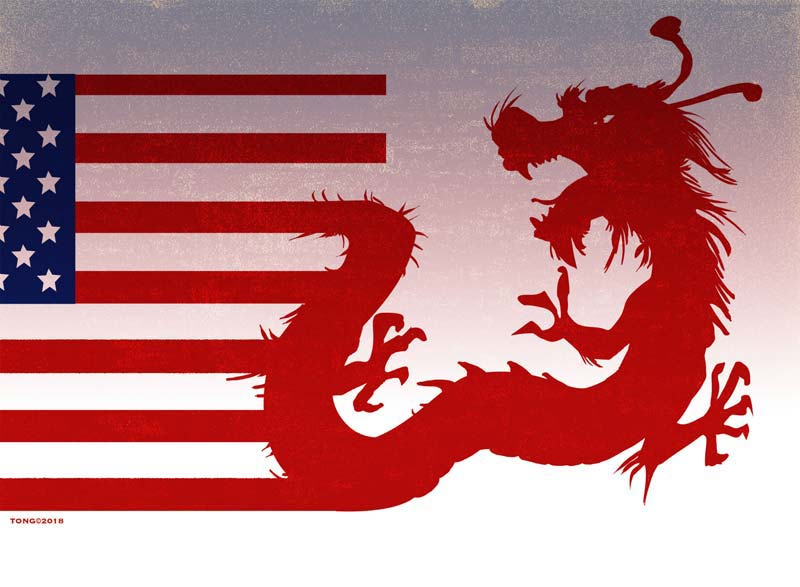
Many have tried not buying items made in China, but it is a near impossibility. Everything from prescription drugs to you name it seems to originate in a country whose regime is proving to be America's greatest adversary and growing enemy.
Which is why now may be the ideal time for the U.S. to respond to the threat of Chinese expansionism where it hurts the most: China's economy.
As The New York Times reports, ā€¯Investment in China has stagnated this spring after a flurry of activity in late winter. Exports are shrinking. Fewer and fewer new housing projects are being started. Prices are falling. More than one in five young people is unemployed.ā€¯
According to the Department of Commerce, ā€¯In 2021, U.S. imports of $50.3 billion of Textile Products from China constituted 32.6% of the total U.S. imports of Textile products. Additionally, in 2021, China remained the major source of U.S. imports of Furniture, Bedding, Lamps, Toys, Games, Sports Equipment, Paint, and other Miscellaneous Manufactured Items.ā€¯
America's trade deficit with China, reports the DOC, is a whopping $355.3 billion, a $45 billion increase (14 percent) from 2020 when it was $310.3 billion.
Robby Smith Saunders is vice president for National Security at the Coalition for a Prosperous America. She writes: ā€¯Economic statecraft ought to be our number one objective right now when it comes to China and mitigating their threats to the U.S. and democratic values, as well as U.S. economic and security interests. But instead of making a few tough financial, investment, export, and business decisions now, our policymakers want to keep as much of the money and knowledge flowing as possible between China and the U.S. for as long as they can, while simultaneously drawing up war plans for Taiwan. It does not make sense to me.ā€¯
It makes no sense to me, either. Properly addressed it would make no sense to many Americans.
The United States ought to declare its intention to wean itself from China by starting to make more things in this country, starting with prescription drugs. There could be serious consequences should China ever decide to cease their manufacture to bend Washington to its will.
This would require, among other things, politicians to unite in a bipartisan and patriotic effort to slow and even stop China's plans for world domination. I suspect many people would be willing to pay at least slightly higher prices for things now made in China if they could be persuaded it was in the best interest of their country and its future.
What's the alternative? More spy balloons and more spying on the ground?
This from the Center for Strategic & International Studies ought to be the starting point for any argument in favor of a changed economic relationship with China: ā€¯It should be noted that the incidents of Chinese espionage far outnumber those by any other country, even Russia. The long-term cost to the American economy and national security cannot be precisely measured, but estimates run into the billions of dollars for commercial and technological espionage. Chinese espionage also created immeasurable damage to national security with the theft of weapons technology, including nuclear weapons test data. In the last few years, China has added the theft of massive quantities of personal information, political coercion, and influence operations, to its espionage activities.ā€¯
Is there anyone running for president who will take this up as a major foreign and domestic policy issue? What about Congress, which seems to be too timid to do much?
If we don't start now, we will regret it later. It might already be too late. Secretary of State Antony Blinken told NBC News that his Beijing trip was an ā€¯important startā€¯ in stabilizing U.S relations with China. He also said countries should move on from the spy balloon incident.
The Chinese haven't moved on. The Wall Street Journal reported Tuesday that China and Cuba are negotiating to establish a new joint military training facility on the island, sparking alarm in Washington that it could lead to the stationing of Chinese troops and other security and intelligence operations just 100 miles off Florida's coast.
How much closer will we allow them to get?
(COMMENT, BELOW)
Cal Thomas, America's most-syndicated columnist, is the author of 10 books.

